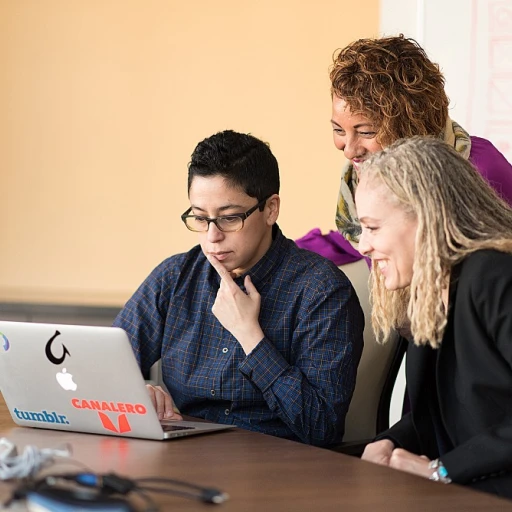
Understanding Leadership Style
Delving into Leadership Approach and Style
In any supervisor interview, understanding a candidate's leadership approach and style presents an essential facet not just for the individual but for the entire team they will steer. A pivotal question to weave into the conversation is, "Can you describe your leadership style?" Such a question allows candidates to articulate how they lead, and more importantly, how they inspire and motivate team members. Their response will undoubtedly reflect on their ability to foster a positive work environment where communication skills and team interactions are pivotal. A prospective supervisor must also demonstrate a proactive stance in seeking innovative solutions and nurturing team engagement. Evaluate whether they possess decision-making prowess that can positively influence the work environment. Pay close attention as the candidate shares their experience, as this will provide insight into how they might handle similar roles in your company. Through this, it becomes clear whether they can adapt their style to different scenarios, which is critical in maintaining effective communication and optimizing team performance. Moreover, exploring their past experiences provides clues to their potential performance. For example, a sample answer sharing a specific instance where their leadership style significantly impacted a project's success would underscore their capabilities. By engaging with these insights, both hiring managers and candidates can better align expectations with organizational goals. Check this guide on elevating employee experience through upward management to understand how a supervisor can enhance their role in fostering a thriving work environment.Conflict Resolution Skills
Resolving Conflicts Effectively
Conflict resolution is a critical skill for any supervisory role, as conflicts are inevitable in a dynamic work environment. When evaluating candidates for a supervisor position, it's essential to delve into their abilities to handle disagreements or misunderstandings between team members. Asking targeted questions during the interview will help you assess their approach and skills in managing workplace conflicts.
Consider posing questions like, "Can you share an instance when you successfully resolved a conflict within your team?" This question can reveal a candidate's ability to acknowledge issues and address them effectively. Pay attention to how they describe the situation, the action they took, and the outcome. A well-rounded answer should include thoughtful decision-making, maintain a positive work atmosphere, and demonstrate a commitment to fostering team harmony.
Additionally, inquire about their methods for proactive conflict prevention through communication skills and team engagement. Questions such as "How do you ensure open communication among team members to prevent conflicts from arising?" can offer insights into their ability to maintain a healthy work environment and their focus on preventing issues before they escalate.
The answers shared in these scenarios will indicate a candidate’s competency in conflict resolution and their potential to contribute positively to the company’s culture. A strong supervisor should demonstrate not only the ability to solve problems as they come but also to cultivate an environment where team members feel heard and valued.
For further insights into the broader impact of management strategies, you might explore the roles played by management consulting firms and how they contribute to organizational success.
Communication Proficiency
Evaluating Communication Capabilities
Assessing a candidate's communication skills is crucial, as it's an integral part of successfully filling a supervisory role. During the interview, it's beneficial to frame questions that reveal the candidate's ability to effectively convey information, both verbally and written, along with their proficiency in listening to and understanding the concerns of team members. Consider asking questions such as:- "Can you share an example of how you successfully communicated a challenging idea to your team?"
- "How do you ensure that your team members fully understand their tasks and responsibilities?"
Motivation and Team Engagement
Fostering Motivation and Team Engagement
In a supervisor interview, understanding how a candidate plans to motivate and engage their team is crucial. The ability to inspire team members can significantly impact overall performance and create a positive work environment. Here are some key questions to consider during the interview:
- How do you approach motivating your team members? This question helps evaluate the candidate's ability to tailor their motivational strategies to individual team members, ensuring that each person feels valued and driven to perform their best.
- Can you share an example of a time when you successfully engaged your team? A sample answer to this question will provide insights into the candidate's past experiences and their effectiveness in fostering team engagement.
- What strategies do you use to maintain team morale during challenging times? Understanding their approach to maintaining a positive work environment during difficult periods can reveal their resilience and problem-solving skills.
These questions not only help assess the candidate's motivational skills but also their ability to create a supportive and dynamic work environment. By focusing on these aspects, you can ensure that the supervisor role is filled by someone who will drive team success and contribute to the company's goals.
Adaptability and Problem-Solving
Evaluating Adaptability and Decision-Making Abilities
When assessing a candidate's adaptability and problem-solving capabilities during a supervisor interview, it's crucial to delve into how they handle unexpected challenges and deliver innovative solutions. These skills are instrumental for a supervisory role, ensuring the team can navigate change and overcome obstacles efficiently. Start by asking about past experiences where the candidate had to make swift decisions in a rapidly changing work environment. Such questions help uncover their approach to problem solving and adaptability. Sample approaches may include encouraging the candidate to share a time when they successfully managed a significant change in their team’s dynamics or a shift in company policies. To evaluate the performance and effectiveness of their decision-making, inquire about the outcomes achieved and the impact on team members. This will give insight into their ability to foster a positive work environment while maintaining productivity. Another key question might assess how they incorporate feedback from team members and adjust their strategies accordingly, demonstrating their flexibility and leadership. By focusing on these aspects, you ensure the candidate can adapt to the evolving landscape of the company and lead their team through challenges with resilience. Such insights will also help the interviewer discern how the candidate's adaptability contributes to their overall communication skills, as seamless interactions often underpin effective problem-solving. Remember, an interviewer’s ability to ask pertinent questions that gauge a candidate’s adaptability and problem-solving prowess plays a vital role in identifying those fit for the supervisory role. In doing so, it sets the stage for a cohesive and dynamic team poised for success.Commitment to Professional Development
Fostering Ongoing Professional Growth
When evaluating a candidate for a supervisory role, it's essential to explore their commitment to professional development. In today's rapidly evolving work environment, a supervisor's ability to keep their skills updated and relevant is crucial. Understanding how a candidate approaches their professional growth can shed light on their long-term viability in the role. To assess this, consider the following questions during the interview:- How do you stay updated on industry trends and developments?
- Can you provide examples of strategies you have implemented to enhance your skills over time?
- In what ways do you encourage your team members to pursue their own professional growth?













